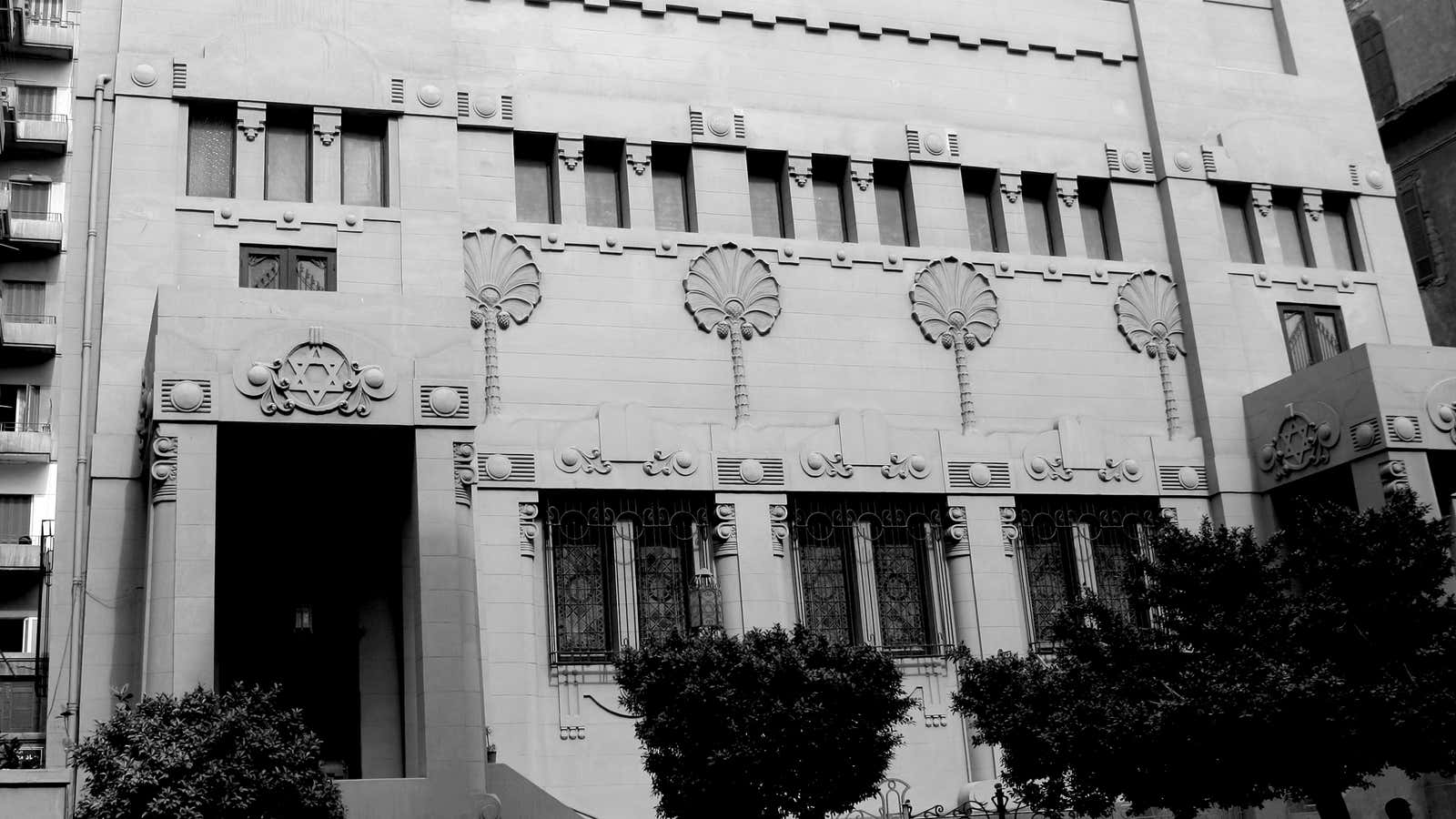After two millennia, it seems Jews are “in” in the Middle East. In what can only be described as a stunning turn of events, Jews—though not Israelis—have become “what’s hot” in the region, and the Muslim Brotherhood has become “what’s not.”
The nostalgia for lost Jewish communities has been a recurring theme since at least 2012 with the release of Amir Ramses’ documentary Jews of Egypt. The latest installment is the Egyptian Ramadan serial called The Jewish Alley (Haret el-Yahood). In between, there has been a rediscovery of Jewish life and culture in Tunisia, Morocco, and Lebanon, where the Maghen Abraham synagogue has been undergoing a lengthy renovation.
It is easy to overstate the case given Egypt’s recent history of seemingly pathological anti-Semitism, but Egyptians seem to have gone further than others in the region in their rediscovery of Jewish life and culture. This should make well-meaning people feel all warm and fuzzy inside, but what is happening in Egypt is actually less rediscovery than reinvention.
When Israeli forces reached the east bank of the Suez Canal on the morning of June 8, 1967, they constituted the largest number of Jews in Egypt at the time. In the preceding two decades, the vast majority of their Egyptian coreligionists had fled to Europe, the United States, and Israel. The largest exodus came after the 1956 British-French-Israeli attack on the Sinai Peninsula and the Suez Canal zone. A small number remained, believing their nationalism and anti-Zionism would protect them. It did and it did not. Crude and vicious anti-Semitism became the stock and trade of the Egyptian media as well as a long list of so-called intellectuals who happily blurred the lines between Jews and Israelis. At the same time, the remnants of Egypt’s Jewish community never experienced pogrom-like violence.
Cairo’s unused synagogues—there was rarely the required ten people, or minyan, for prayer—were always well protected. This may have been a cynical effort to draw a distinction between official hostility to Israel and Judaism, but importantly, those houses of worship remained as a testament to Judaism’s past presence in Egypt.
Jews did play important roles in Egyptian commerce, culture, and politics in the first half of the twentieth century. Ramses, his producer Haitham al-Khamissi, and the people who brought about The Jewish Alley want to leverage a sanitized version of this history to make claims about Egyptian society—especially its once, and future, religious tolerance and inclusivity. In Jews of Egypt, Gamal Abdel Nasser and Zionists conspired to make the once allegedly idyllic Jewish existence in Egypt a nightmare of sequestration, suspicion, anti-Semitism, and exodus.
This Ramadan, unlike some holiday mini-series from the recent past that were notable for their anti-Semitic themes, Jews are portrayed sympathetically, as authentic Egyptians, and as victims of the Muslim Brotherhood. The profound national trauma of post-uprising Egypt has some Egyptians looking back to a time when the country was not locked in an all-consuming struggle with its violence, Jacobin-like discourse, pervasive repression, and widespread distrust. Under these difficult circumstances, Jews are a perfect device through which Egyptians can create a tolerant past if only to give the audience some faint hope of a more just, open, and less prejudiced future.
With so few Jews left in the country, their history in Egypt is entirely malleable. It is true that Ramses features Jews outside the country who nurture fond memories of all things Egyptian, but it is clear that he is interested in telling a story about Egypt rather than an accurate reflection of the history of its Jewish population and why it has dwindled to so few.
It may well be that the hagiography of Egypt’s Jews is part of a new set of positive myths that will help Egyptians answer questions about who they are and what kind of society they want. For this then, everyone should welcome the new interest among some Egyptians in Egypt’s Jews. Yet that is not enough. In order to build that socially just, tolerant, and more representative society that Egyptians want, they will actually have to grapple with and revise a history that only has a vague resemblance to what they have been telling themselves about their Jewish brothers and sisters.
